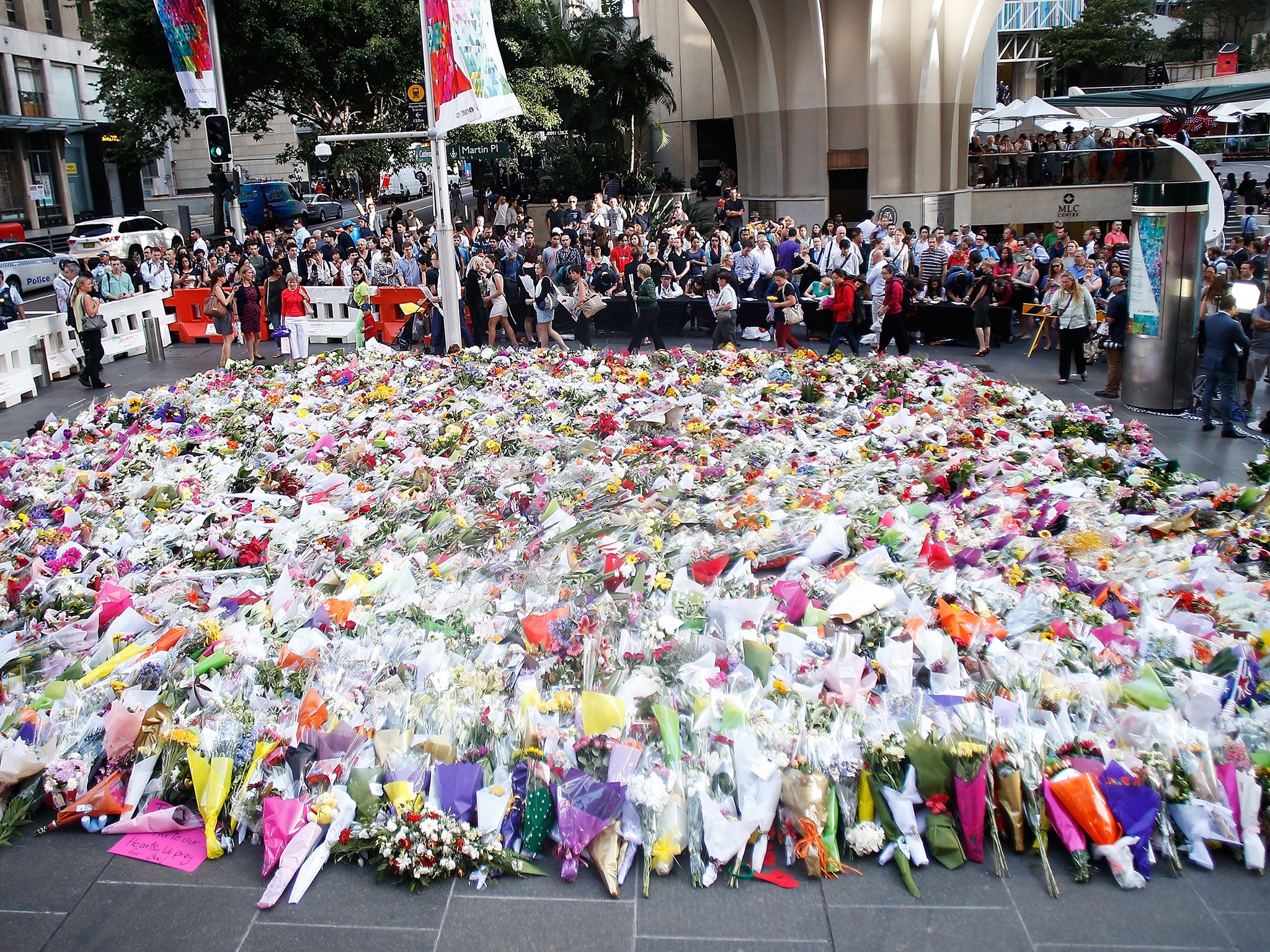Sydney siege: How should we respond to such an act of terror?
Yesterday's attack has proven that we all have a role to play in tackling extremism

The siege and hostage-taking incident in Sydney encapsulated many of the current debates surrounding global terrorism and our understanding of it.
First there the misinformed debate about the flag held up in the Lindt Café by the man we now know to be Man Haron Monis. Insistence that this was the Islamic State flag was met with counter-claims that it was the Jabhat al-Nusra or the Hizb ut-Tahrir flag.
An over-emphasis on the group affiliation of the hostage taker came at the expense of sensible analysis about his actions. In fact, the flag belongs to none of the above groups but has been misappropriated by Islamists and jihadists in the last 40 years.
We’re not in a generational struggle against Islamic State the organisation, rather Islamic state the idea and all those who want to realise this idea. Today’s attacks on a school in Peshawar may look different and the Taliban may identify different grievances, but the Islamist ideology and worldview are shared.
But the most worrying aspect is the re-emergence of the "lone wolf" jihadist. The lack of a link between Monis and Islamic State so far will quell many fears, but it does the opposite for me. If there is no command and control from Raqqa, we can’t use laws to prevent it.
There are two ways we can go: we can further expand laws to tackle extremist ideas and those who pursue them, or we can consider other approaches that may be more effective at tackling self-starting loners, online and offline radicalisation, as well as the pre-eminent jihadist brand. In liberal democracies, the latter is surely preferable to the former.
Personal responsibility online is another issue that appears on these occasions. With the accessibility of social media and the internet, we are all able to share the news, be the news, contribute to the debate and have access to an unprecedented level of information; in many cases, we are the media.
We must therefore all avoid sensationalised analysis that tars all Muslims with the violent brush that jihadists choose for themselves. We must also strive to understand the differences between Islam and Islamism and use the appropriate language to discuss such incidents.
Failure to get this right alienates Muslims the world over who abhor this violence. It also grants undue legitimacy to those who misappropriate Islam for political means, and even stokes grievances relating to anti-Muslim hatred, which are exploited by Islamists for their own radicalising and recruitment ends.
On an individual basis, we must avoid fetishising the jihadist cause and feeding the egos of Islamic State members with excessive coverage, but instead fight back. To this end, the excellent work of the Australian-based People against Violent Extremism (PaVE), and the hashtag #illridewithyou, shows the power of civil society-led counter-narratives to extremism, which are a positive way that we can all challenge the ideology and the strategy of Islamists and jihadists.
Loner attacks like this are notoriously difficult for police forces to combat, yet they have the potential to affect all people all over the world. Before we are all overcome with the terror that terrorists seek to instil, we need to educate ourselves on flags, media responsibility, and the ideology that is the root of this medieval barbarism.
Join our commenting forum
Join thought-provoking conversations, follow other Independent readers and see their replies
Comments
Bookmark popover
Removed from bookmarks